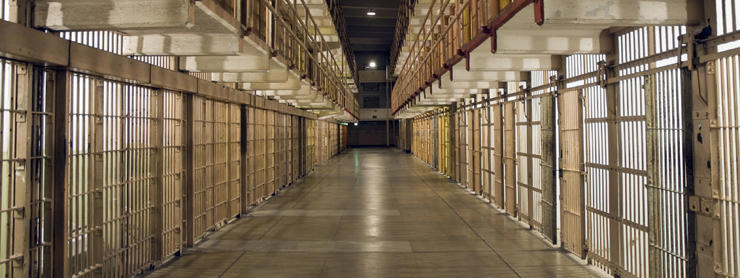Democracy Now!
We know that democracy means Rule By the People, but what does that look like? The first democratic practices were centered around land ownership, as acquiring land was the primary mode of wealth generation and wealth and power go hand-in-hand. Later, when trade became big, the right to decide political machinations was extended to merchants, opening the door a bit to the peasant class since owning land was not the only way to become a voter. However, for most of democracy’s life here in what we now call the United States, voting has been a white man’s task. However, even after the passage of the 14th, 15th, 19th, and 26th Amendments, the Indian Voting and the Voting Rights Act (all possible through many social movements for expanding suffrage), the majority of electoral power is given to a few, powerful individuals – most of whom are wealthy white men.
Take this presidential cycle, for instance, where anti-democratic practices among Democrats and Republicans are the norm rather than the exception:
- voter disenfranchisement;
- caucuses;
- winner-takes-whole-state (even in states where the “winner” has only 35% of the vote);
- inaccessible voting locations;
- failure to supply interpreters;
- super delegates;
- Super PACs;
- shut-outs of third party candidates;
- media giving weight to oversized personalities and numbers;
- voting fraud;
- reduced polling locations;
- reduced polling times;
- restrictions to early/absentee voting;
- restrictive registration rules;
- reversals on the Voting Rights Act.
Even within these systems, there’s severe, gross inequality and injustice. The rich fund SuperPACs and can do with them precisely what they want, apart from normal regulations. But consider the revelation that 40% of SuperPAC funding comes from a paltry fifty individuals and we have a clearer picture of who is running our democracy. Consider who can arrange long car rides on election day to attend a several-hours long caucus, and who these caucuses are accessible to? You would need to be very mobile, have strength, child sitters if you have children, have the physical stamina for it, and preferably speak and understand conversational English.
Scratch underneath these problems and we see a fundamental flaw. Right from the outset, we are dealing with a system set on how many delegates a particular candidate can win. This means that at its heart, American national elections is a game – a complex chess game that seemingly necessitates armies of lawyers and Scrooge McDuck vials of gold. It is not about how many raw voters, let alone support, one wins from the people. Many of these decisions run down to which name is more positively identified than the other in the public’s consciousness.

Not only is spending obscene amounts of money unquestionable, but so is the fact of outright lies and fabrications against the opponent – which becomes a normalized and rewarded practice in a political climate based on fear. This fear-, lowered-expectation-, and deceptive-filled climate in itself results in the most undemocratic practice: That of political disenfranchisement.
While the Republican Party worries about a capitalist-fascist like Trump fracturing the entire party, the Democratic Party feels more secure with its superdelegates. But they would not need superdelegates if they could and would actually engage the common voter outside of the bastions of power and environment of control.

“Yes in May to the Alternative Ballot” by Elektra Grey Photography
These practices will not be undone any time soon. There will be no magical Supreme Court Judge who can overturn Citizen’s United, much less reverse the Age of Fear in Politics. The bell has been rung. But that is also how the constitution was framed from the beginning.
See, American democracy has always been a mixture between Rule of the People and Rule of the Oligarch. The 3/5ths compromise, after all, was not a description of the humanity of enslaved people, but of how much power their bodies – absent their wills – would be to the slaveholding states. The same principal is applied to regions with high prison populations, as these folks are robbed of their ability to vote, but are still counted in terms of representation – just a representation that they are not allowed to partake in; a representation that actively works against their best interests. In many regions, even after having committed their time, ex-cons are not allowed to participate in the vote (and often not allowed to participate in an above-ground economy that works for them).
Looking at the interests of the major players in the presidential race, we see that not one of them – not even Bernie Sanders – questions the role of the United States empire, a perpetual war-making catastrophic death machine that siphons billions of dollars a year to prop up oligarchical machines while murdering countless abroad and perpetrating economic catastrophes that harm workers the world over, and then back at home.
Most Americans, however, are not involved in politics save the occasional presidential run because they have been disenfranchised from politics. They do not see nor feel the effects of policies and military actions on them, their families or their communities. Truthfully, with national elections, they may not.
It may be time to bring it all home – to take the economic investing that Sanders is talking about, using the people’s money for the people’s benefit, but to start at the local level and move up from there. Here, it is easier to hold elected officials accountable, to show up and cause them trouble, to hold pressers, to organize with folks who share similar concerns as the police trample civil liberties while the city shutters basic services and the rents sky-rocket.
It will be at the local level where we can convince our friends, neighbors, teachers, workers, stay-at-homes, the unemployed, the returning deployed, the homeless, parents, college students that they can get involved in political maneuvering that will guarantee them water, walls, well-being.
Democracy – the people who rules themselves, one zip code at a time.
